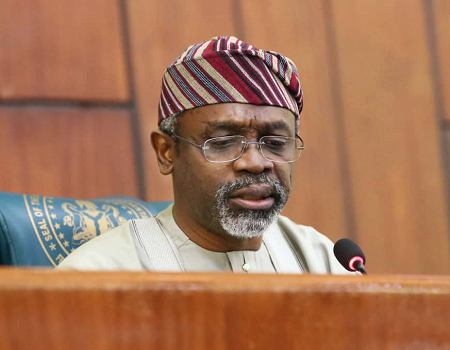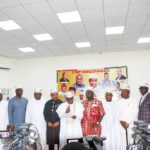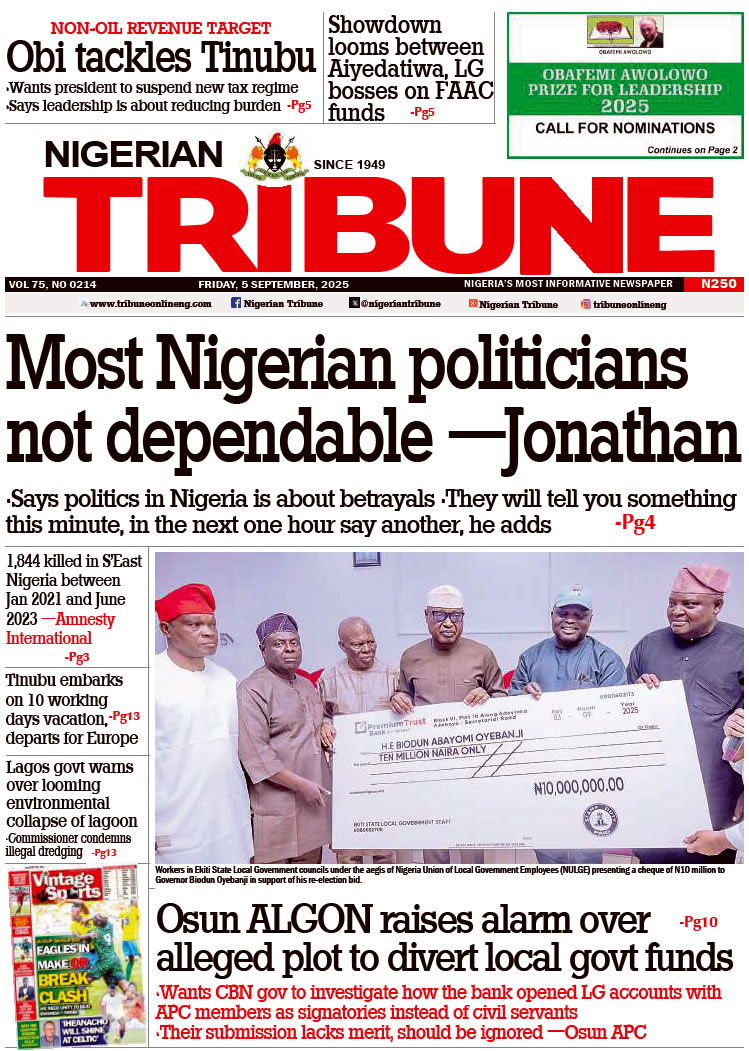The Speaker of the House of Representatives, Hon Femi Gbajabiamila, on Monday, called for an upward review of minimum qualifications for elective offices currently pegged at secondary school certificate.
As encapsulated in the 1999 Constitution, sections 131 and 177 stipulates School Certificate level or its equivalent as educational qualification for election into the office of President while sections 65 and 106 also stipulates Secondary School or its equivalent for election into the National Assembly and State Houses of Assembly.
Hon Gbajabiamila gave the charge while delivering a paper titled ‘Building back better: Creating a new framework for tertiary education in Nigeria in the 21st Century, at the 52nd Convocation of the University of Lagos State.
While expressing concern over the provisions of the 1999 Constitution (as amended), Hon Gbajabiamila said the current constitutional provision where the educational qualification for elective offices is pegged at secondary school certificate should be increased.
“I also sincerely believe that the National Assembly needs to look into section 131 (d) of the 1999 Constitution with a view to increasing the minimum educational qualification for persons aspiring to be future Presidents of Nigeria and other top offices including the National Assembly as against the current minimum requirement of a Secondary School Certificate or its equivalent.”
According to him, “As we have reduced the age for eligibility to contest those offices so also, we should increase the minimum educational requirement.
“It will be another step in reforming our electoral system and providing strong leadership for the country,” the Speaker noted.
Speaking further on the education sector, Hon Gbajabiamila expressed optimism that it could be put back on the right track, as he offered some solutions to some of the problems.
He said: “What does this moment require of us? It requires first that we be honest about the scale of the challenges we face. Honesty about the scale of the challenges we face and the realities of our present circumstances free us to engage in the sort of radical thinking and innovation that would have been considered taboo just a few years ago.
“How do we move on from our present circumstances? Most national policy discussions of higher education focus on questions of structure and financing, understandably so because the problems in this regard are many and unresolved. However, there are essential issues of curriculum, teaching methods, assessment and fairness that should engage our minds too and be part of any reform propositions.
“Wholesale reviews of our curricula and teaching methods to situate our practices in the context of global labour needs is the bare minimum. This does not take away from the need to institute a programme of aggressive and sustained investment in the physical infrastructure of classrooms and lecture halls and technology hardware and software to facilitate information exchange and innovation.”
He bemoaned a situation where despite the change around the globe, Nigeria has not done enough in government, the academia, and society to adjust its education and skills acquisition system to meet these new realities.
Hon Gbajabiamila said there was the strong need to come up with pragmatic ways of addressing the problems in Nigeria’s education sector.
The Speaker, who is an alumnus of UniLag, said: “When we consider the problems of education infrastructure, access to educational opportunities, quality of instruction, the welfare of teachers, lecturers and professors, we will do well to remember that all of these factors matter only to the extent that they are necessary to build institutions that produce citizens who can advance the cause of Nigeria.
“Our world has changed. The old certainties from which we derived assurance and built our expectations no longer exist. The value of the extractive industries that have powered our economy has deteriorated. It continues to do so rapidly, as technological advances lead us toward a future where coal, crude and gas are replaced by renewable alternatives of solar, wind and water.
“For Nigerian citizens to thrive in this new world, participate fully and productively in the new global economy and benefit from rather than be consumed by the technological advancements that are changing our world, tertiary education in Nigeria must be prepared to embrace reinvention and adapt to disruption.
“In a digital age, where socio-economic participation is based on intellectual ability and access to information, a purposeful and well-rounded education is a fundamental human right because the individual’s ability to participate fully in society depends almost entirely on the quality of education available to them.
“Unfortunately, it is still the case that the foundations of our educational system are rooted in a different age and designed to meet the social, economic and labour demands of a different societal and economic model.
“As the world has changed, we have not done enough in government, academia, and society to adjust our education and skills acquisition system to meet these new realities.”
He also advocated close collaboration between educational institutions and the organized private sector to have a better system.
“Tertiary institutions in Nigeria need to develop a new understanding of the changing nature of work and the future of employment and allow this new understanding to inform the nature of instruction and the substance of the education they provide. Collaboration between our higher institutions and the organised private sector is vital in this regard so that we can jointly rise to the demands of the moment.
“Across the world, a symbiotic twinning of academia with the private sector has allowed for the creation of knowledge hubs that drive innovation and economic advancement. California’s Stanford University has become both the training ground for Silicon Valley’s elite and the beneficiary of enormous contributions in manpower, financial resources, and networking opportunities that have turned the institution into a powerhouse for the ages.
“I have often wondered why similar arrangements have not been recreated in our environment. We can all easily agree that many universities in the country, private and public, would benefit significantly from such close contact with private sector energy, practice, and resources. What then mitigates against this level of close collaboration? Is it the existing laws? Is it reluctance on the universities’ part or the organised private sector itself? These are some of the questions we must ask and answer as we seek to reposition tertiary education in Nigeria to meet the demands of a changing world,” he added.
YOU SHOULD NOT MISS THESE HEADLINES FROM NIGERIAN TRIBUNE
FALSE! Yoruba Not An Official Language In Brazil
Claim: A national newspaper and multiple online platforms claim Brazil has adopted Yoruba as its official language and that the language would be included in primary and secondary schools curriculum.
Verdict: The claim is false. The content of the article published by these online platforms is not new; it has been recirculated several times and has been debunked.
WATCH TOP VIDEOS FROM NIGERIAN TRIBUNE TV
- Let’s Talk About SELF-AWARENESS
- Is Your Confidence Mistaken for Pride? Let’s talk about it
- Is Etiquette About Perfection…Or Just Not Being Rude?
- Top Psychologist Reveal 3 Signs You’re Struggling With Imposter Syndrome
- Do You Pick Up Work-Related Calls at Midnight or Never? Let’s Talk About Boundaries






